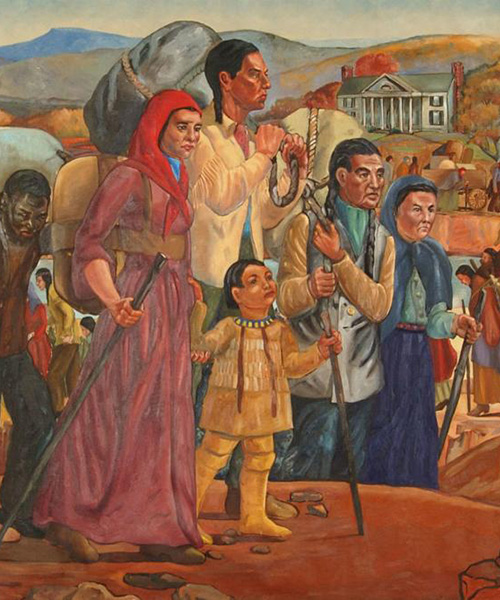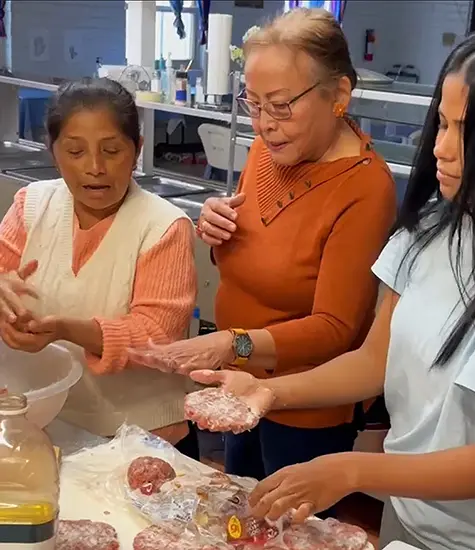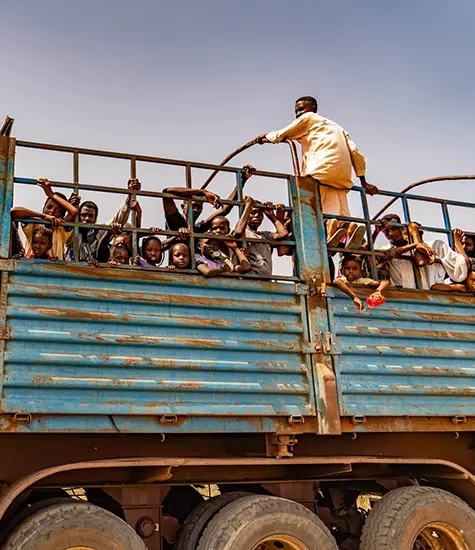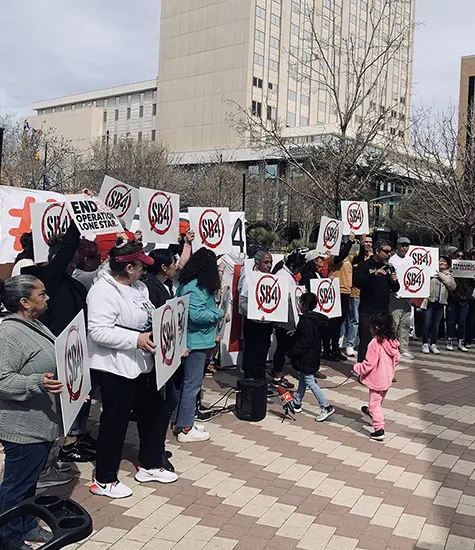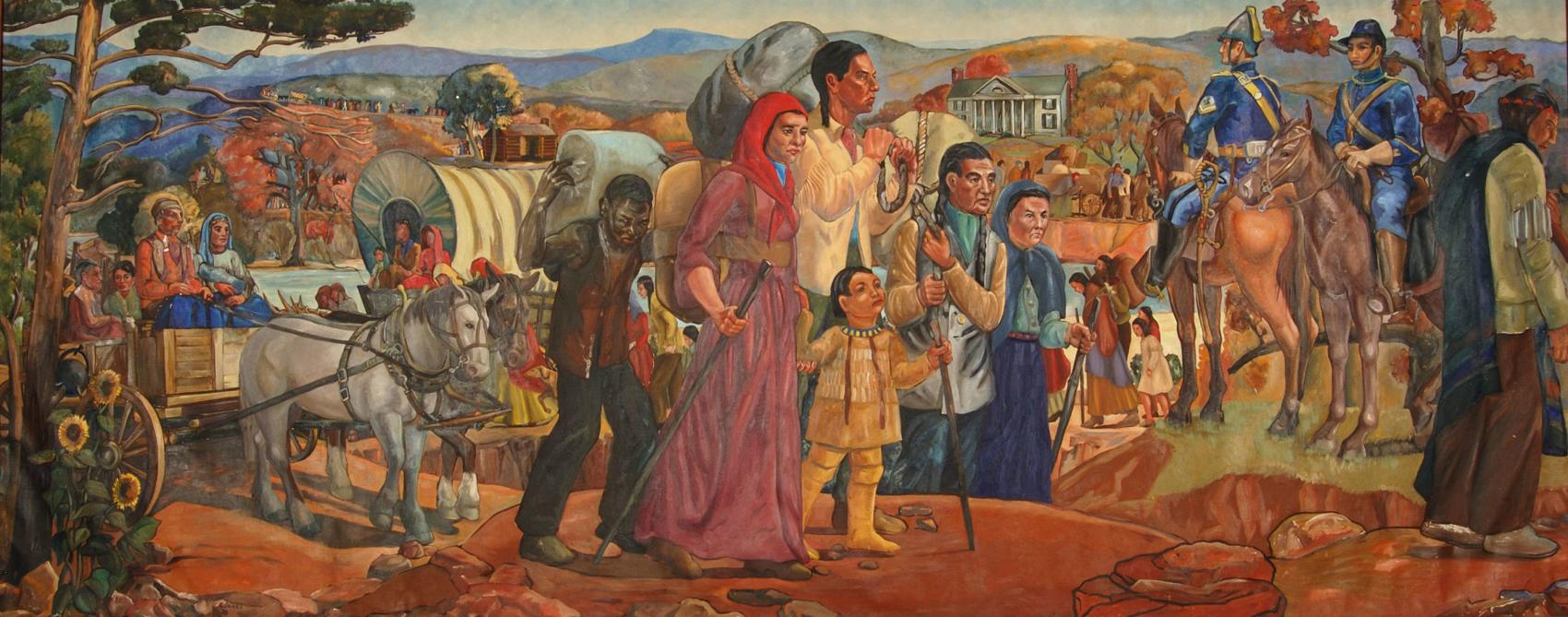
Trail of Tears (mural by artist Elizabeth Janes; Oklahoma Historical Society)
The events and protests this year have reinforced the importance of a national examination of conscience around race and around the unresolved legacy of both slavery and Native American oppression and genocide.
Perhaps this Thanksgiving, as we close Native American Heritage Month, we should take a moment to reflect both on the distortions that have been part of this holiday of ours, and on the injustices still inflicted on Indigenous peoples today. We can remember the history of Indigenous and native peoples so often neglected and “whitewashed” in this holiday, support Indigenous and native farmers as we purchase food for our holiday meals, and continue to join in advocacy on their behalf to our leaders.
One thing we could do this year would be to incorporate into our Thanksgiving rituals an “Acknowledgment of Country,” a tradition that started in Australia and has since found its way to Canada and the United States. It is a way to pay respect to First Nations people as the traditional owners and ongoing custodians of the land by expressing this kind of simple statement:
We are non-Indigenous settlers and must acknowledge that we are living and working on Indigenous land, which was forcefully taken and from which we continue to benefit. On this day, we acknowledge the [Lenape and Wappinger] peoples as the Traditional Custodians of Country in the area now known as [Ossining, New York, on which Maryknoll is built]. Living on their land, we pay our respects to Elders past, present and future, and resolve to be listeners, allies, learners, facilitators, and influencers.
Finding out on whose land we live and work is a first step, and this searchable database makes it easy to do.
And if you are looking for a prayer for your Thanksgiving meal this year, here is one that is excerpted from the beautiful Haudenosaunee Thanksgiving Address:
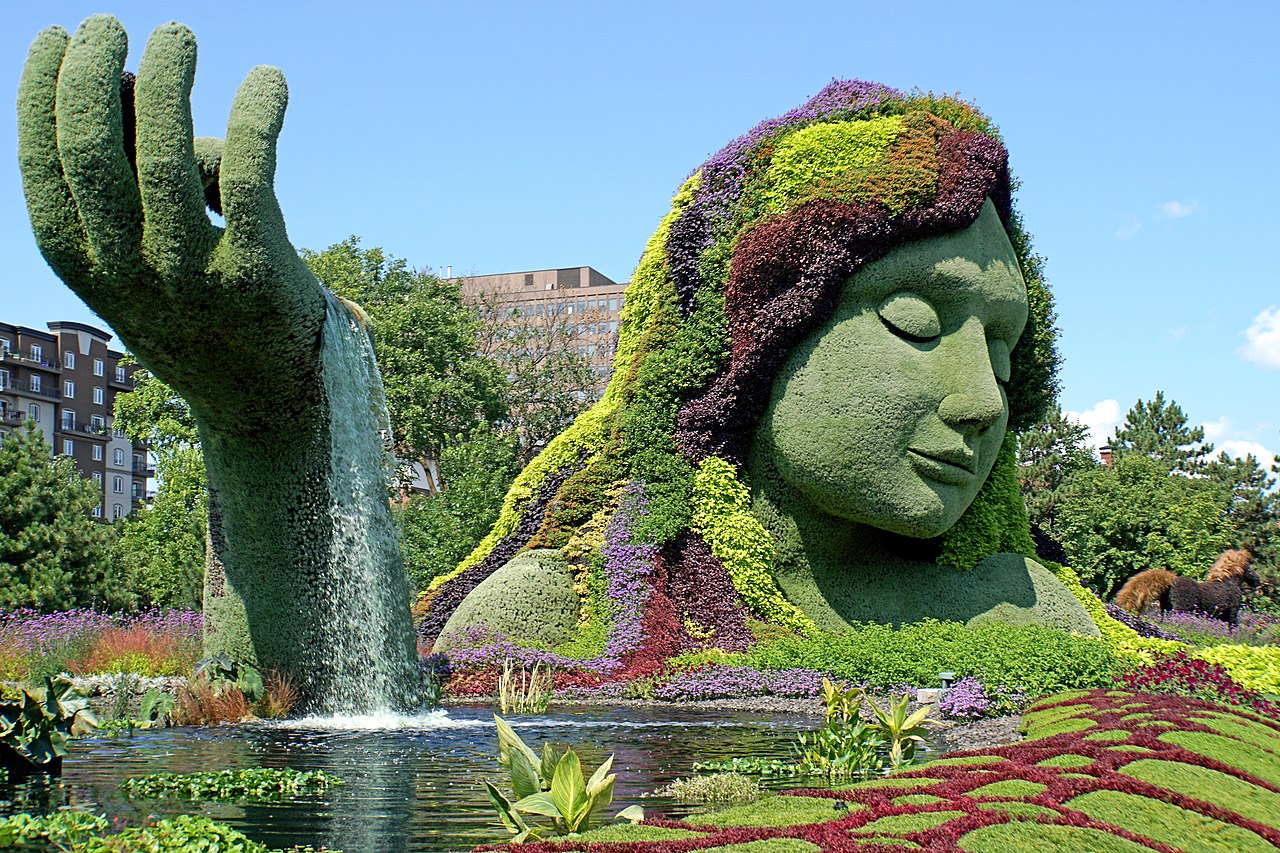
Mother Earth from the creation story of the Haudenosaunee; Jacques-Cartier Park, Gatineau, Québec (Photo Dennis Jarvis via Wikimedia Commons)
Our Mother, the Earth, gives us all that we need for life. It gives us joy that she continues to care for us as she has from the beginning of time. To our Mother, we send thanksgiving, love and respect.
Now our minds are one.
We give thanks to all the Waters of the world for quenching our thirst and providing us with strength. Water is life.
Now our minds are one.
As far as the eye can see, the Plants grow, working many wonders. We give thanks and look forward to seeing Plant life for many generations to come.
Now our minds are one.
We gather together the Food Plants: grains, vegetables, beans and berries that have helped the people survive, and we send them a greeting and thanks.
Now our minds are one.
The Animals, who walk about with us, have many things to teach us as people. We are grateful that they continue to share their lives with us and send our thanks to the Animals.
Now our minds are one.
We hear the voices of the Four Winds in the moving air as they refresh us and purify the air we breathe. We send our greetings and thanks to the Four Winds.
Now our minds are one.
Each day without fail, our eldest Brother, the Sun, travels the sky from east to west, bringing the light of a new day. He is the source of all the fires of life. Thanks to our Brother, the Sun.
Now our minds are one.
Everything we need to live a good life is here on this Mother Earth. For all the gifts of Creation and for all the love that is still around us, we gather our minds together as one and send our choicest words of greetings and thanks to the Creator, or Great Spirit.
Now our minds are one.
Excerpted from the Mohawk version of the Haudenosaunee Thanksgiving Address (published in 1993 and provided courtesy of Six Nations Indian Museum and the Tracking Project; all rights reserved).

